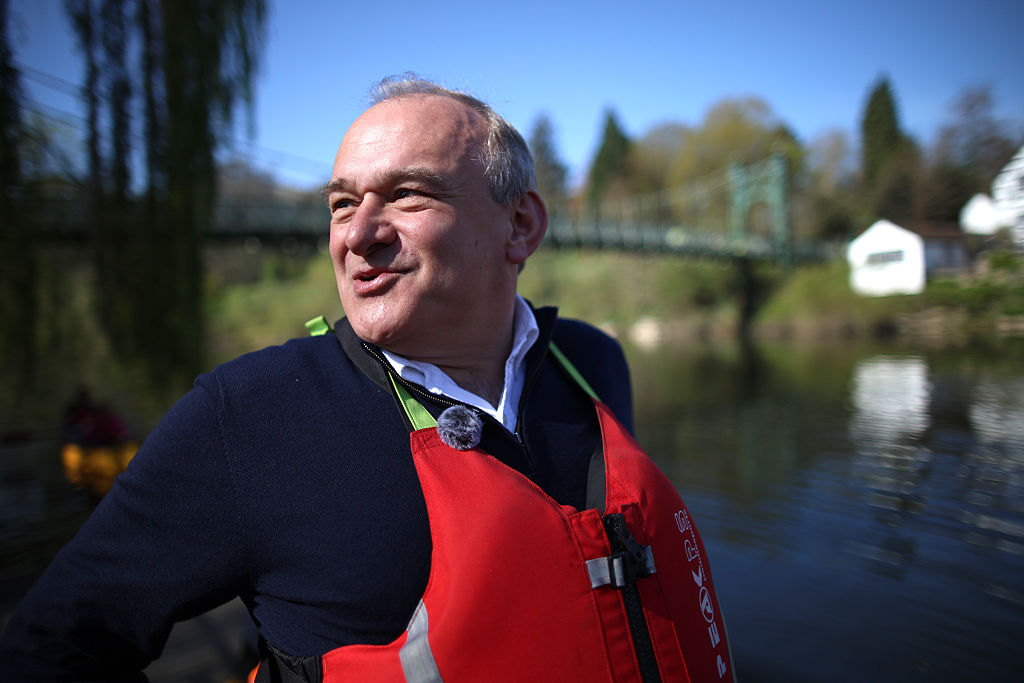There’s no doubt that Friday’s local election results belonged to Reform. Nigel Farage’s party has picked up hordes of councils, councillors and mayoralties at the expense of the two major parties.
However, it won’t only be Farage and co. who are heading into the bank holiday on a high. The Lib Dems have made meaningful gains, and these should worry the Tories as much as anything Reform have done. They hint at an almost total collapse of the moderate, “one-nation” voter base that used to be so crucial
Lib Dem leader Sir Ed Davey, whose elections day stunt was to hand out ice creams in Shrewsbury (his party is hoping to scoop control of Shropshire County Council…) has declared the Lib Dems ‘the new party of middle England’. It is hard to argue with that.
With 18 of 23 councils declared, Sir Ed’s party had picked up a total of 320 councillors, a gain of more than 120. They have also taken control in both Cambridgeshire and Oxfordshire, and there are results in fertile territory still to come. As well as gaining power locally, those extra councillors are a huge boost to the party’s ground game, something which is crucial to them.
The orange wave has also swept through places like Cornwall and Kent, the latter being an area of particular interest to the Lib Dems ahead of polling day. At the time of writing, they’ve already doubled their number of representatives on the County Council there, jumping from six to 12. (Reform have cleaned up in most of the wards, picking up over 50 seats and all but wiping out the Tories.)
Tom Morrison, the MP for Cheadle, said: ‘I think this is a really good election for us, with a lot of results still to come in which we’re feeling confident about.’ An activist I spoke to was feeling similarly buoyant.
That activist also noted that the party had poured huge resources into trying to claim a win Hull & East Yorkshire Mayoral race. They failed in this endeavour, losing by 1,400 votes, a rare blot on a generally successful day.
Cheadle MP Morrison couldn’t ignore the rise of Reform but thinks their progress ‘will worry many people across our communities so it’s vital we have a progressive, liberal voice to counter the divisive rhetoric of Farage.’
And this can be his party’s approach, positioning themselves as the real alternative to Farage while the likes of Sir Keir Starmer and Kemi Badenoch pander to him. The Lib Dems previously did this with Ukip, essentially arguing that you could vote for Ukip or them, but the major two parties were a waste of time.
That result in Hull rather makes the point. The Lib Dems go 10,000 more votes than Labour in third. The Tories couldn’t even muster 2000.
In some ways, the better Reform do the better it is for the Liberal Democrats. Despite a predilection for questionable graphs, they can now legitimately point to numbers that prove that it is a choice between them and Reform in many areas. They can make the case that if you want right-wing populism, vote Reform, if you want something else, they are the only option, that only they can be the ‘liberal voice’ Morrison talked about.
Nigel Farage commands huge media attention, and there is no doubt that his party has tapped into very real level of frustration amongst the British electorate. However, the Lib Dems would argue the get into communities and get the job done. It’s no surprise that their opponents are known to refer to them as the political equivalent of Japanese knotweed – impossible to remove once it gets embedded in an area.
Whether it is fining headphone dodgers, criticising Donald Trump or fixing the local church roof, the Liberal Democrats are trying to make sure they make an impact at every level of politics.
Since Sir Ed took the helm, the Liberal Democrat’s approach has been to take on the Tories, hoping to pick up those voters who have become disaffected with their rightward tilt. It worked at the last General Election and today’s results are another endorsement of the approach.
At some point, they will need to remember that it is Labour who is in government, not the Conservatives or Reform. But that’s a problem for another day. For now, the Lib Dems can celebrate taking another huge step back from the oblivion of the post-coalition years.







Comments